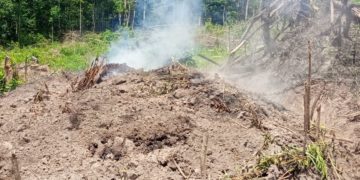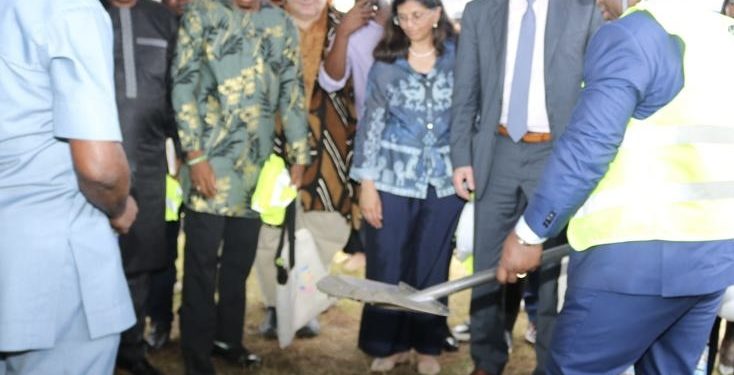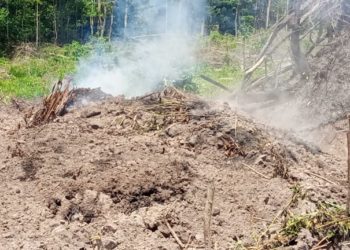By Kemo Cham
The United States government has made the first disbursement of funding towards the construction of the first large, utility-scale independent power project in Sierra Leone.
The U.S. International Development Finance Corporation (DFC) announced on Tuesday that it had released an undisclosed amount out of the $292 million loan to support CECA SL Generation Limited, which is contracted to construct and operate the 105MW combined-cycle power plant in Freetown.
Known as the Western Area Power Generation Project, construction of the Nant power plant was launched on June 18, 2024. The facility located in Kissy in the East end of Freetown is jointly being developed by the DFC, the ECOWAS Bank for Investment and Development (EBID), and Project Developers Milele Energy and TCQ Power.
DFC announced earlier in the year that its Board of Directors had approved up to $412 million in financing and political risk insurance for the project.
This is Sierra Leone’s first gas-to-power plant, and it is expected to nearly double the electricity generation capacity of the country.
According to the Ministry of Energy, it is designed to generate up to 150 megawatts, more than the country’s existing Bumbuna Hydro Power Plant, making it the largest power project in the country.
The construction period was billed to last for 36-months.
The loans from both DFC and EBID will enable the country to meet energy access goals and replace high-cost temporary solutions, a statement issued by the US States Department said. It added that the development is the result of a partnership between the US and Sierra Leone governments which aims to attract private investment into the sector and set a goal of creating one gigawatt of energy capacity over the next decade.
“The scale and impact of the Nant Project make it a standout example of what DFC and partner institutions like EBID can accomplish when working together with our private sector partners to benefit the communities where we operate,” Scott Nathan, CEO of DFC, was quoted in the statement.
“This transaction is a major milestone for Sierra Leone’s energy security and economic development and represents the largest percentage increase in energy capacity in a single country of any DFC project,” he added.
As part of the project, EBID is providing USD40million.
Dr. George Agyekum Donkor, Chairman of the Board of Directors of EBID, said the project is aligned with the bloc’s mission to promote economic development and regional integration.
“As the regional development finance institution serving the Economic Community of West African States (ECOWAS) region, EBID is proud to play a catalytic role in unlocking the vast potential of West Africa. Our partnership with DFC to finance this critical energy infrastructure project in Sierra Leone marks a significant milestone in this journey, supporting the country’s transformative path towards economic growth, improved fiscal balance, and a brighter future for its people,” he said.

This development comes as Sierra Leone deals with a serious energy shortfall, amid growing demand.
The country currently generates about 100mw in electricity, but not all of this is utilized, thanks to issues within its transmission and distribution system. This also means that much of the communities that are connected to the national grid face load shedding and recurrent blackout.
The government has recently announced many initiatives geared towards addressing this energy deficit.
Dr. Kandeh Kolleh Yumkella has been leading these initiatives as Chairman of the Energy Governance Coordination Group established by President Julius Maada Bio earlier this year. Yumkella described the Nant Project as a “landmark initiative” that underscores Sierra Leone’s commitment to building a resilient and diversified energy future.
“Thanks to the pivotal investment by DFC, this 105MW combined-cycle power plant will transform our energy landscape by delivering reliable and secure electricity to power development, drive economic growth, and create job,” he said.
Yumkella also said that this project aligned with the country’s broader goals under the $480 million US Millennium Challenge Corporation Compact and Sierra Leone’s Just Energy Transition and Green Growth Plan, noting that it would “significantly” reduce its dependence on imported fuels and mitigate the vulnerabilities associated with high-emission, unreliable, or weather-dependent energy sources like hydropower.
“By expanding access to electricity, promoting energy security, and fostering innovation, the Nant Project advances our journey towards sustainable development and strengthens the resilience of our energy sector for the benefit of all citizens,” Yumkella said.




















